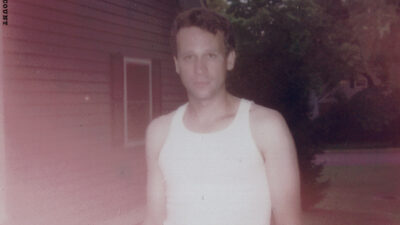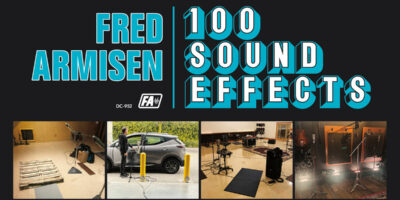Genre: Emo
Favorite Tracks: “Left Behind,” “Different Bodies,” “Memorial Day”
“You can’t ever go home again,” Spirit Night frontman Dylan Balliett proclaims on BURY THE DEAD’s penultimate track “Pittsburgh,” after spending nearly the entirety of the record proving this declaration false: not only can you go home again, you don’t have any other choice. It’s fitting that the realization of this paradox comes on a track that feels akin to the experience of going to your shitty hometown dive bar on the night before Thanksgiving. It’s both comforting and alienating to come back to what was once familiar, to realize how far you’ve come from your humble beginnings but how immediately all the reflexes of home reveal themselves when you return. Over a subtle slide guitar, the tension between regression and maturation becomes palpable.
It’s no secret that Spirit Night’s first full-length LP since 2015’s SHAME is a homecoming record, through and through. Balliett’s stayed busy in the eight years leading up to SHAME’s long-awaited, self-released follow-up—he’s played with emo revival spearheads The World Is A Beautiful Place & I Am No Longer Afraid To Die, put out a handful of Spirit Night singles, and weathered the COVID-19 pandemic as an independent musician. These experiences have been dogeared by trips back to Balliett’s hometown of Ranson, West Virginia.
Though BURY THE DEAD wears its sonic influences from emo, country, and heartland rock on its sleeve, its biggest takeaway seems to be one that all of these genres continuously return to: no matter where you end up, you can never truly escape your hometown. Though, “escape” might not be the best word choice here, the connotations here are too negative to fully encompass a record that’s as enamored with its small town origin stories as it is haunted by them. From Rozwell Kid drummer and fellow West Virginian Jordan Hudkins’ pounding percussion guiding the record’s rhythm, to the cover art—a faded photograph of the Blue Ridge mountains towering over the Potomac—BURY THE DEAD is Dylan Balliett’s big-picture look at the landscapes (auditory, geographical, emotional) that raised him.
Such a holistic look at one’s past isn’t an easy feat. Where other equally conceptual homecoming narratives often fall into the trap of either wallowing in “get out of this town”—clichés and overgrown angst or nostalgia for an idyllic and idealized past that was never actually that pure and good, Balliett’s songwriting on BURY THE DEAD is refreshingly nuanced. He’s said that much of the album’s inspiration comes from revisiting the music he’d associated with his formative years—and from watching the friends he’d shared those sounds with grow up. For better or worse, there’s a good deal of truth to what people say about the records you loved as a teenager being the ones that stick with you and shape your music taste for decades to come. While setting out to make the kind of album that his younger self would’ve needed, the musical influences of Balliett’s youth don’t leave him mired in the past. Rather, they’ve matured with him.
The opening three-song run of frenzied “Left Behind,” rootsy “So Long,” and distorted “Country Roads” has a grandiosity that few of today’s bands are ambitious enough to shoot for—and even fewer have the earnestness and technical prowess to pull off. In some ways, it calls back to the bombastic, folksy-yet-stadium-ready quality of 2000s indie rock; think My Morning Jacket, TV On The Radio, or The National. It’s a guitar-forward style that, though intimate and at times even literary, feels big and sweeping in the way that made the cream of the post-Meet Me In The Bathroom crop of indie darlings so memorable.
There’s a desperation and theatricality that groups like Los Campesinos!, Broken Social Scene and any number of inaugural Saddle Creek bands embraced that their contemporary counterparts seem deathly afraid of—sometimes for good reason, as words like “desperation” and “theatricality” are rarely invoked positively, other times because “cringe” has seemingly replaced “sellout” as the worst accusation that could be levied at an indie musician. Instead of taking on a narrative voice that’s detached and distant, Balliett leans into the discomfort that comes with sincerely confronting one’s past, whether that’s in lyrics recalling bad tattoos and late night joyrides or tongue-in-cheek self-contradictions like “Acceptance is not my thing / That’s just the way I am.” A track like “Angelica” makes no attempt to hide its power pop tropes, even going so far as to namecheck a genre staple that’s been covered too many times to count—but also slyly subverts them. In what starts out as a seemingly classic case of “right person, wrong time,” the narrator acknowledges the lingering what-ifs without letting them get in the way of his and the titular character’s longstanding friendship, ultimately coming to the conclusion that maybe it’s for the best that the one that got away, got away.
Loss (and acceptance of it) are BURY THE DEAD’s through line, like a bumpy backroad. The Fleet Foxes-reminiscent “Different Bodies” starts with a shared in-joke about the 27 Club, only to just as swiftly drop the bomb that the person on the other end of the conversation has become a member. Its lush instrumentation and layered harmonies work in eerie contrast with lyrics that are both grateful for the expansive world that exists beyond the limits of one’s suffocating hometown, and racked with survivor’s guilt over a friend who didn’t live to see it. Grief plays an active role in “Any Way I Am,” imbuing Balliett’s narration with a deeper appreciation for the beauty that surrounds him, but simultaneously serving as a barrier that prevents him from experiencing it purely. The “sunset on TV” is the perfect metaphor for the coexistence of pain and joy. Each one necessitates the other.
All of this comes to a head on the closer “Memorial Day,” which begins as a fingerpicked funeral dirge complete with a horn section. It slowly builds into a bittersweet parade into the future that commemorates those who are confined to the past. The final lines of the record leave the listener in an uneasy truce with what’s been left behind.
I can see us
In the distance
Rising from our beds
Climbing from the holes we dug
And burying the dead
It isn’t closure, just a fleeting moment of peace with the knowledge that waiting on a neatly resolved ending is futile. Maybe that’s the best any of us can hope for: no choice but to meet reality on its own terms and a good song to play us out.















Comments